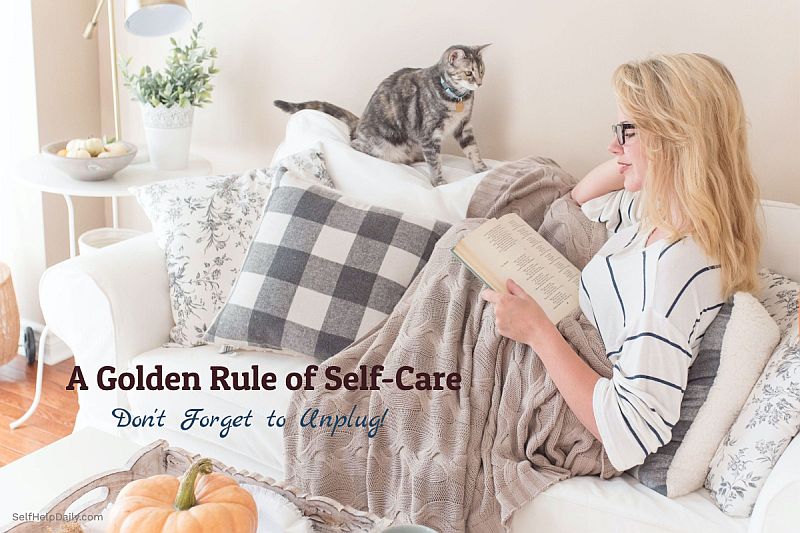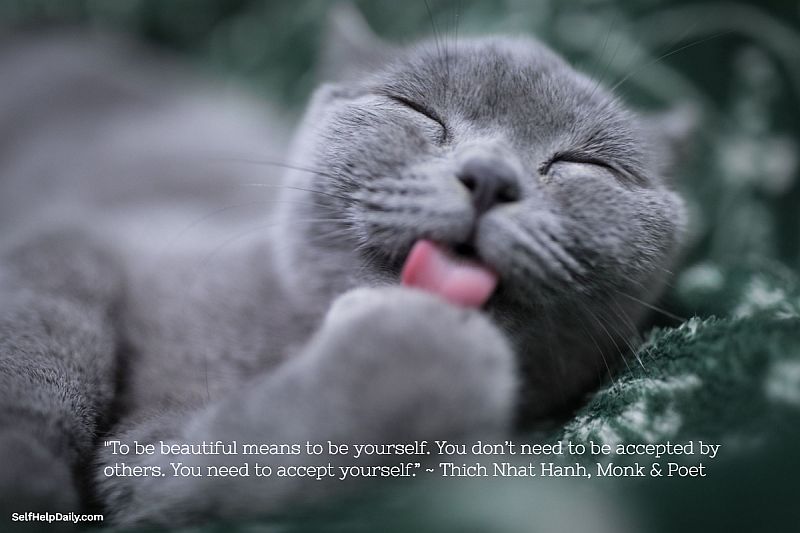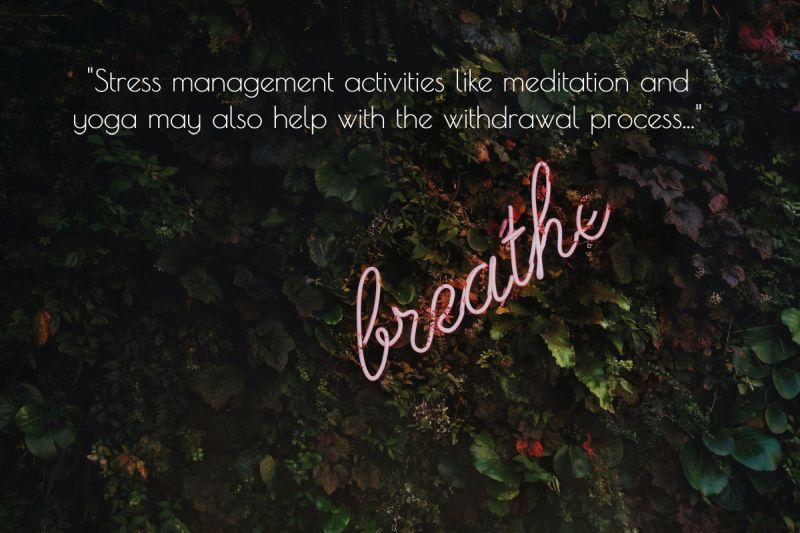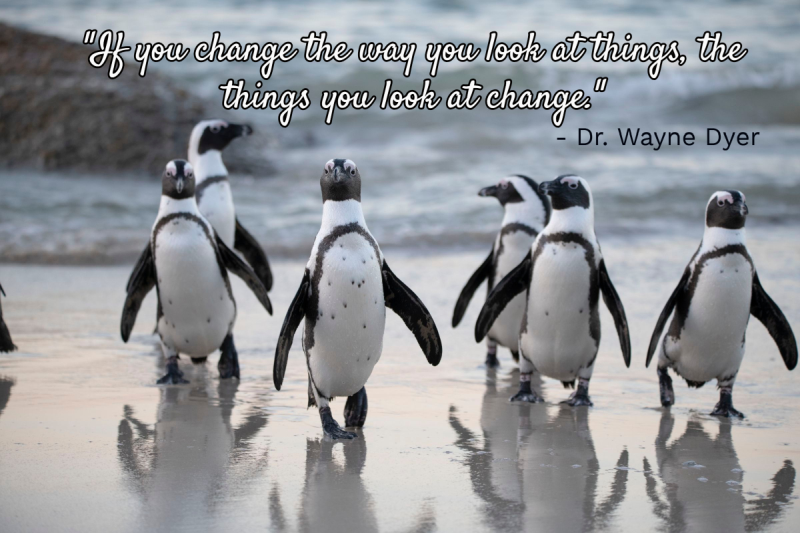UnPlugging is a Vital Part of Self-Care
by Nicole McCray
In today’s internet age, feeling run down, overworked, and tired 24/7 is the norm, rather than the exception. Burnout has become the official term used to describe this state of chronic stress and mental exhaustion.
If you’re feeling overwhelmed and emotionally drained and you’ve lost interest and motivation for activities you used to love, there’s a good chance you’re suffering from burnout. Sometimes, just thinking about the word stress makes you feel stressed!
Let’s take a deeper dive into why self-care is more important now than ever, plus some actionable dos and don’ts you can apply to your daily life.
Why Practicing Self-Care is so Important in the Internet Age
Thanks to modern technology and the internet, many of us are working our day jobs plus a side-hustle or two. And while we may be passionate about what we’re doing, practicing self-care often falls to the back burner when we’re always hustling.
On top of that, our phones have become a source of entertainment. They’re full of games, videos, news, and social media. It’s so easy to lose sight of yourself. You feel drained without really knowing why. Emotions pile up and relationships get pushed aside without even realizing it.
In a nutshell, spending so much time on the internet creates a disconnect from one’s feelings, thoughts, and sense of individuality. And when you’re consumed with work day and night, it’s no wonder your mental state begins to shift. There’s just no energy left for you.
If this sounds like you, it’s time for a serious change! When was the last time you treated yourself to dinner and a movie, read a book, or took a long walk in nature? The fact is your mind and body need downtime away from work and the internet to recharge.
Self-care is an investment in yourself. Unplugging for a few hours to connect with others and reconnect with yourself is a necessity, not a luxury. It will recharge and rejuvenate you so that you can be present in your daily life.
The Dos and Don’ts of Self-Care
Self-care isn’t a new concept, but it has certainly become a buzzword in recent years. What does practicing self-care really mean? There’s so much information coming at you all the time, it’s hard to even know where to begin. Here are some tips to guide you down the path of self-care in a healthy way.
Don’t neglect the basics.
Don’t underestimate the value of basic self-care. Eating a healthy meal, getting a quality night’s sleep, exercising, spending time outdoors, and taking a shower every day is essential for your mental and physical health.
But, taking a few minutes to apply the best primer for makeup and foundation, a little concealer, some mascara, and a bit of blush or lip color before you head out the door can have powerful effects on your mood, too. It’s like telling yourself you’re worth it, and nothing is more important than that.
Do practice self-awareness as part of self-care.
You can’t take care of yourself if you don’t know what you need. Building self-awareness means checking in with yourself every day. Are you getting enough sleep, healthy food, and exercise? Are you feeling anxious, sad, or bored? Why?
Remember that you are a dynamic individual. Your needs are constantly changing. Spending some time every day assessing your thoughts and feelings will help you reconnect with yourself and feel cared for.
Don’t use self-care as an excuse to be irresponsible with your money.
There’s absolutely nothing wrong with treating yourself once in a while, but don’t use self-care as an excuse to overspend. Taking care of yourself doesn’t require buying something new.
Avoid using retail therapy as a way to avoid dealing with your relationships, problems, or emotions. And don’t buy something you can’t afford because you think it will make you feel better. Creating a budget and sticking to it will make you feel much better in the long run.
The best things in life are free! You don’t need to blow your paycheck on a fancy dinner out to practice self-care. Journaling, meditation, yoga, tidying up your personal space, great conversations, and practicing gratitude are completely free and excellent examples of self-care.
Do ask for help when you need it.
You can’t do everything yourself and acknowledging that is a huge part of self-care. There’s no shame in enlisting the help of a babysitter, a family member, a friend, or even a therapist if that’s what you need. Many times, your loved ones will appreciate the chance to be there for you.
Don’t forget to unplug.
We’ve already touched on this, but the importance of unplugging regularly can’t be overstated. It’s easy to end a long day with a few hours of mindless scrolling and binge-watching, but that’s not always what’s best for you.
Comparing yourself to the “perfect” images of influencers or celebrities on TV and the internet is terrible for your self-esteem. And, getting lost in the plethora of depressing news stories coming out every day is also terrible for your mental health. Making a point of unplugging at least one day every week should be a top priority.
And finally, do remember that self-care isn’t one size fits all.
While a rose-scented bubble bath may sound amazing to many, maybe the thought of soaking in the tub until your fingers turn wrinkly just doesn’t appeal to you. That’s ok! Be honest with yourself. If something is supposed to feel good but doesn’t feel good to you, don’t force yourself to do it anyway. You’re unique and your self-care routine should be too!




